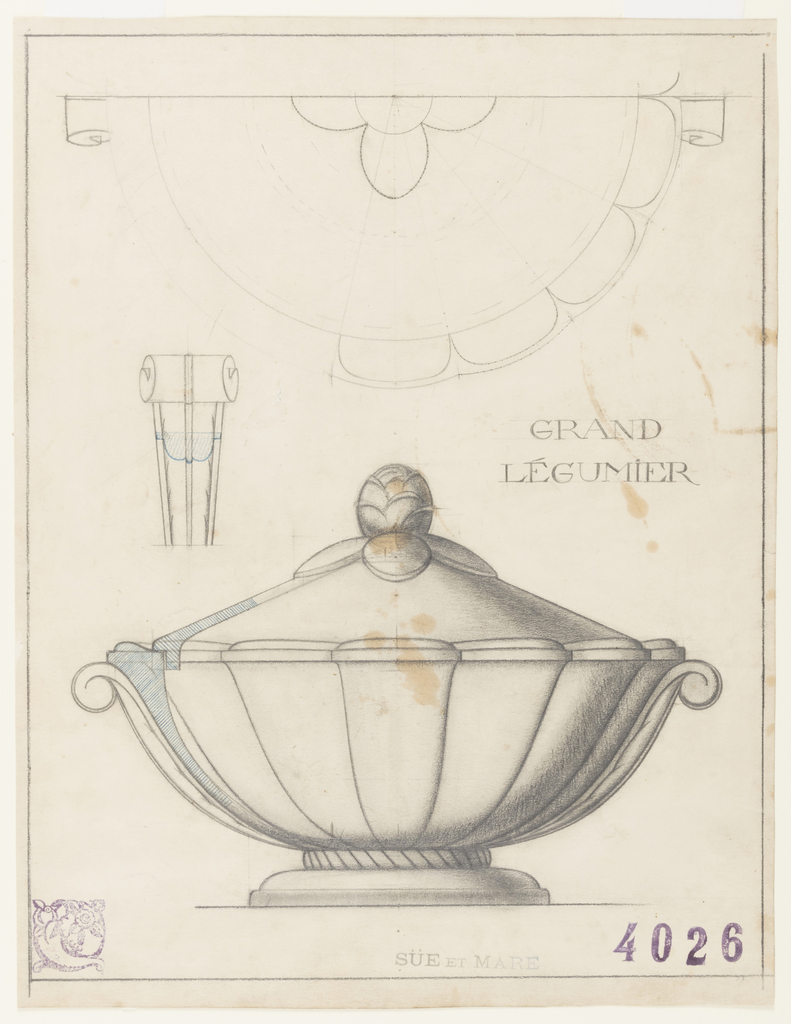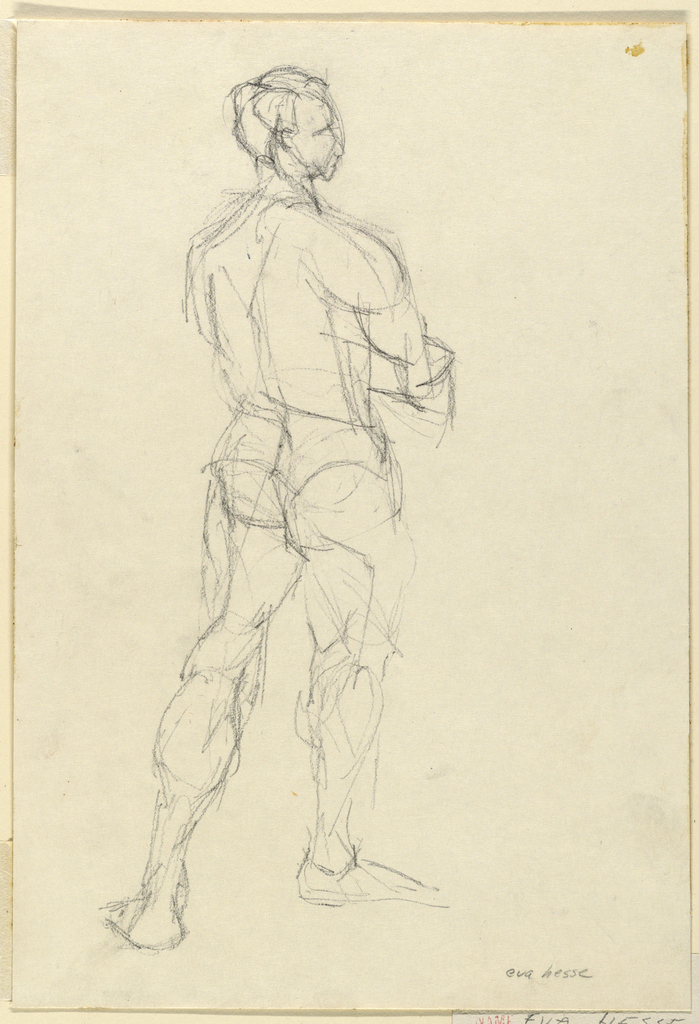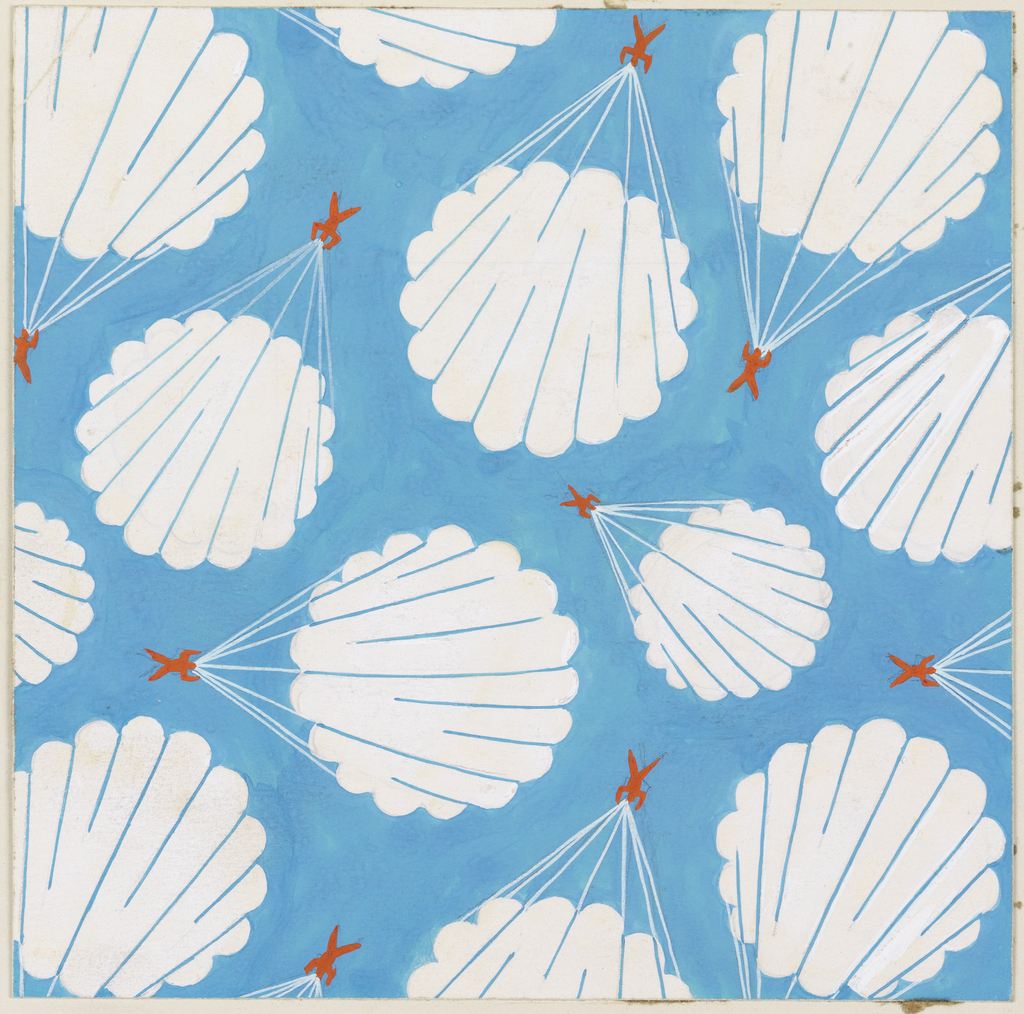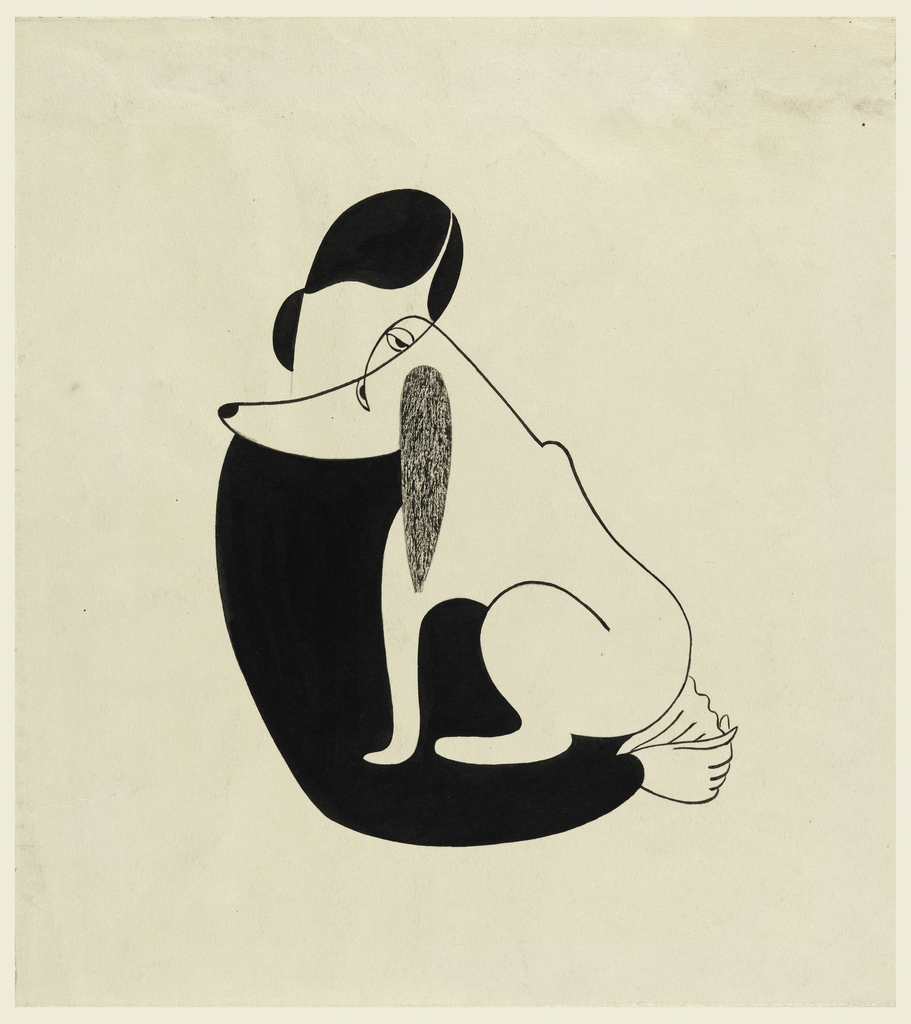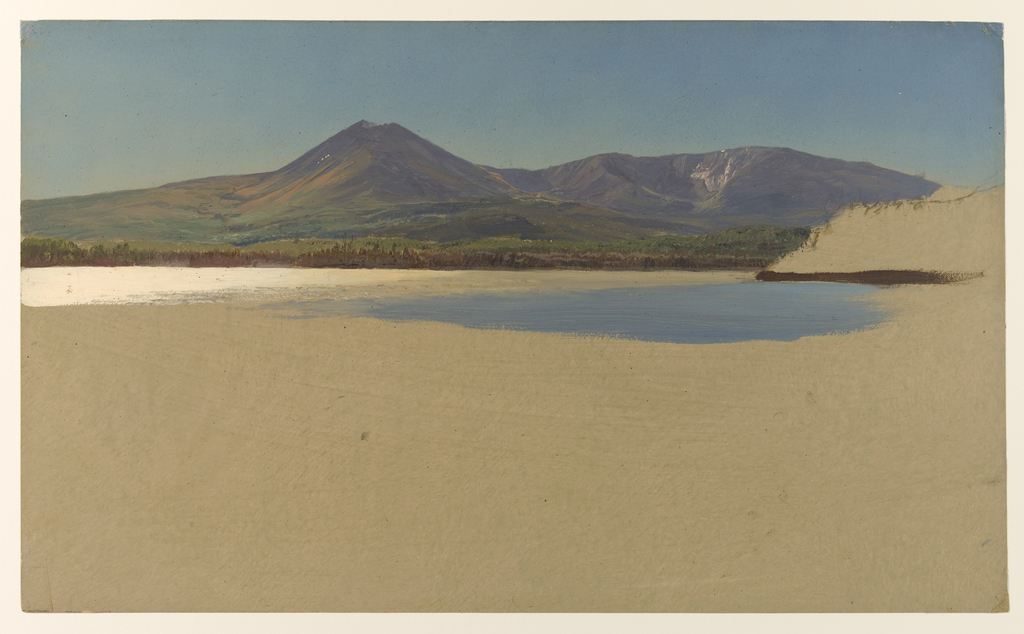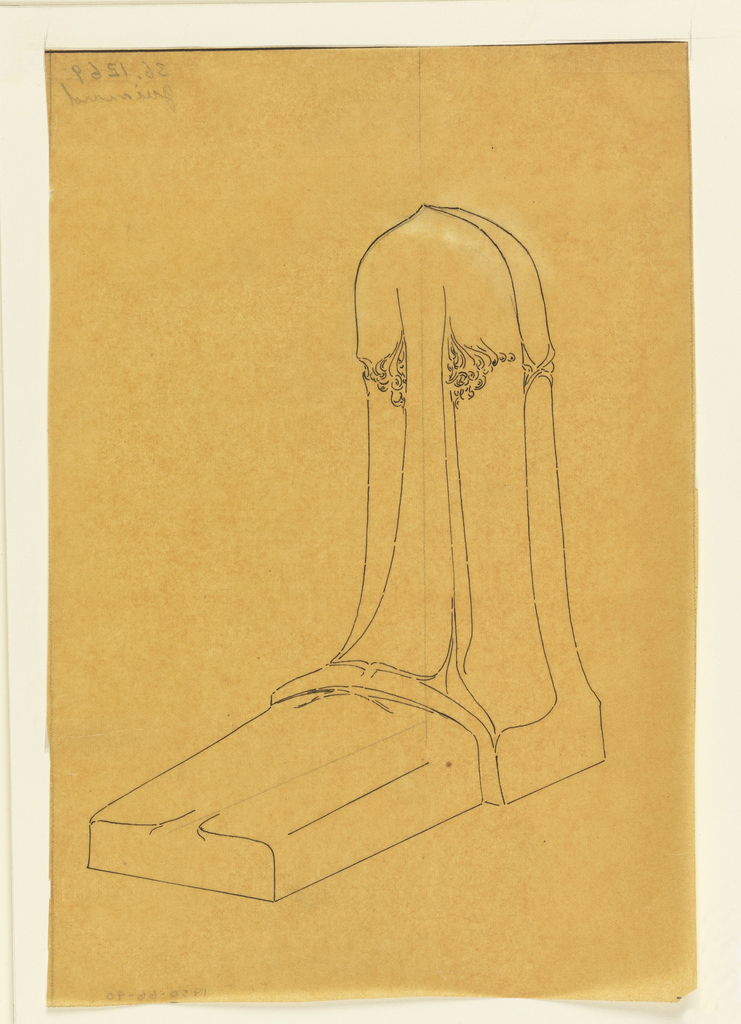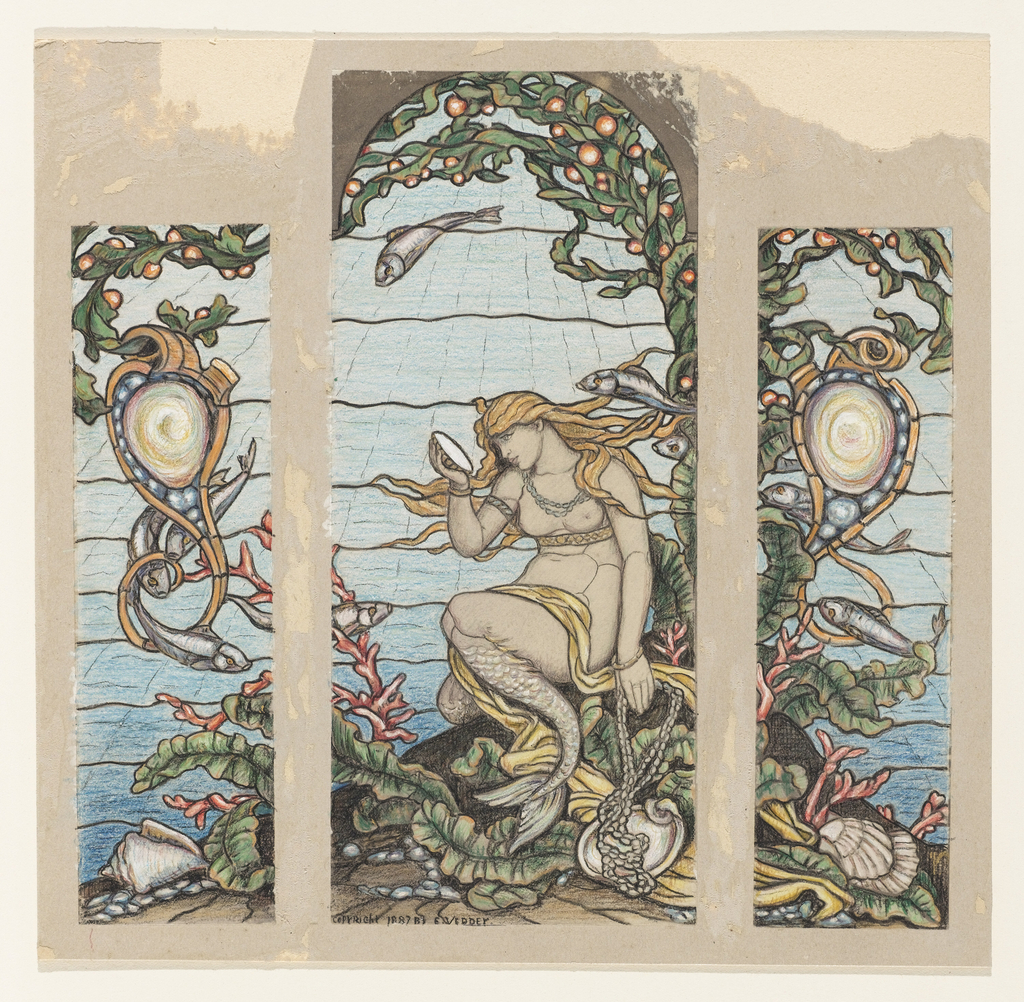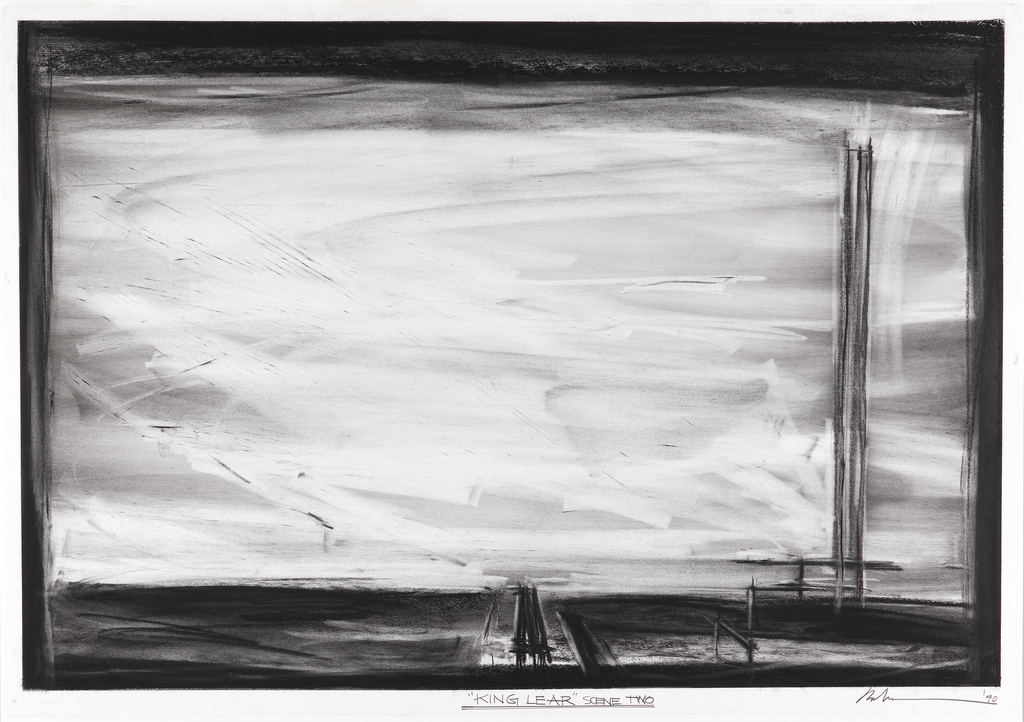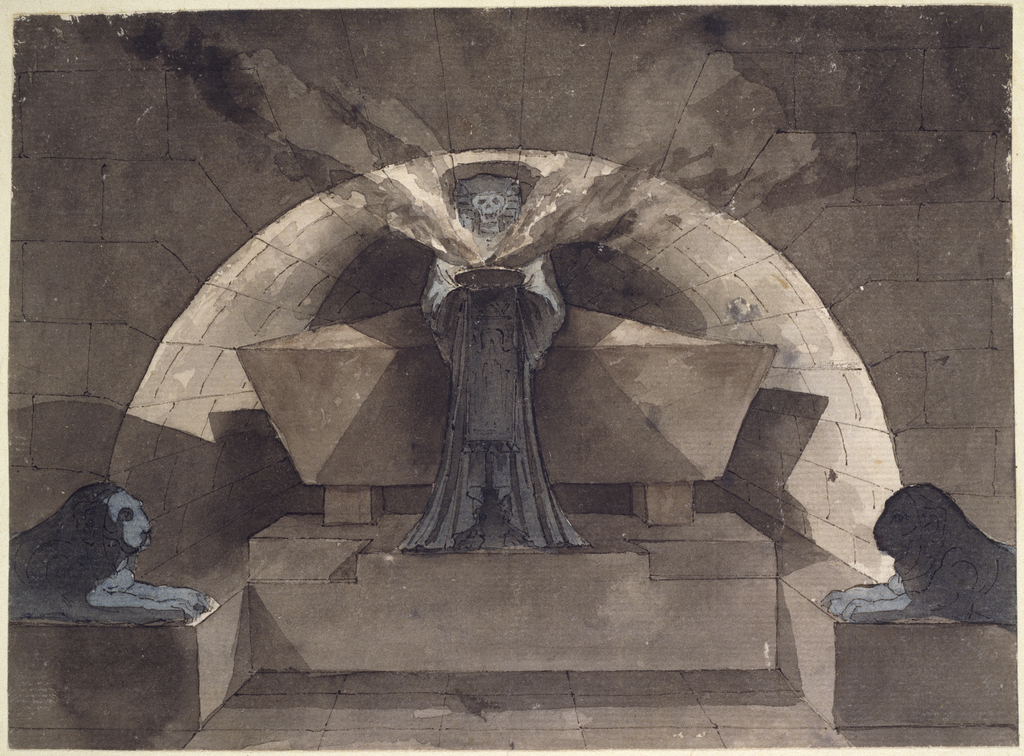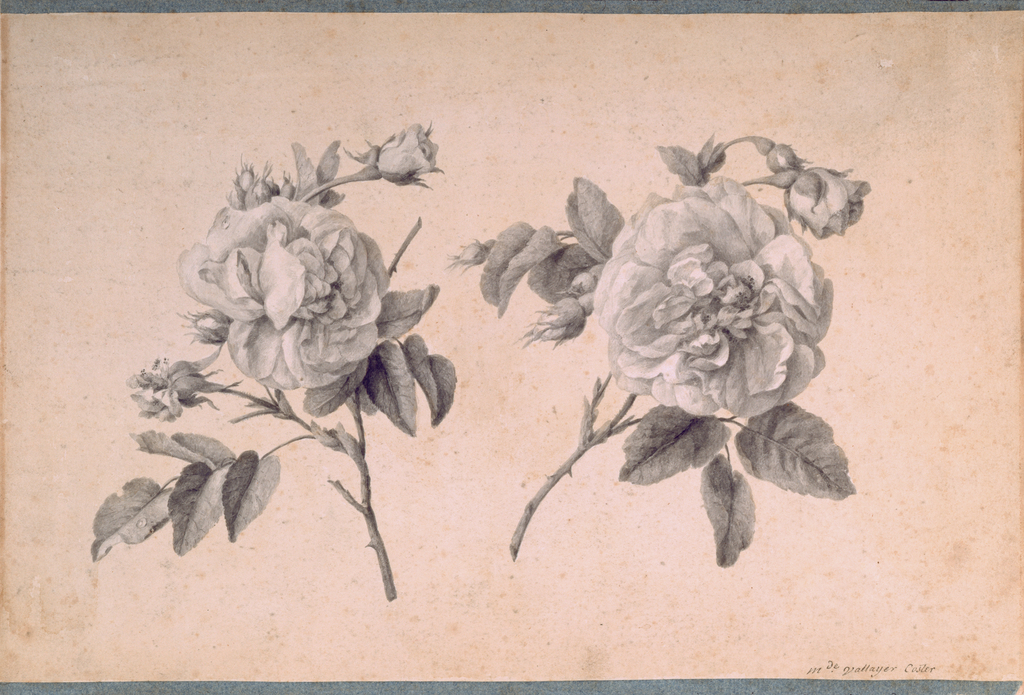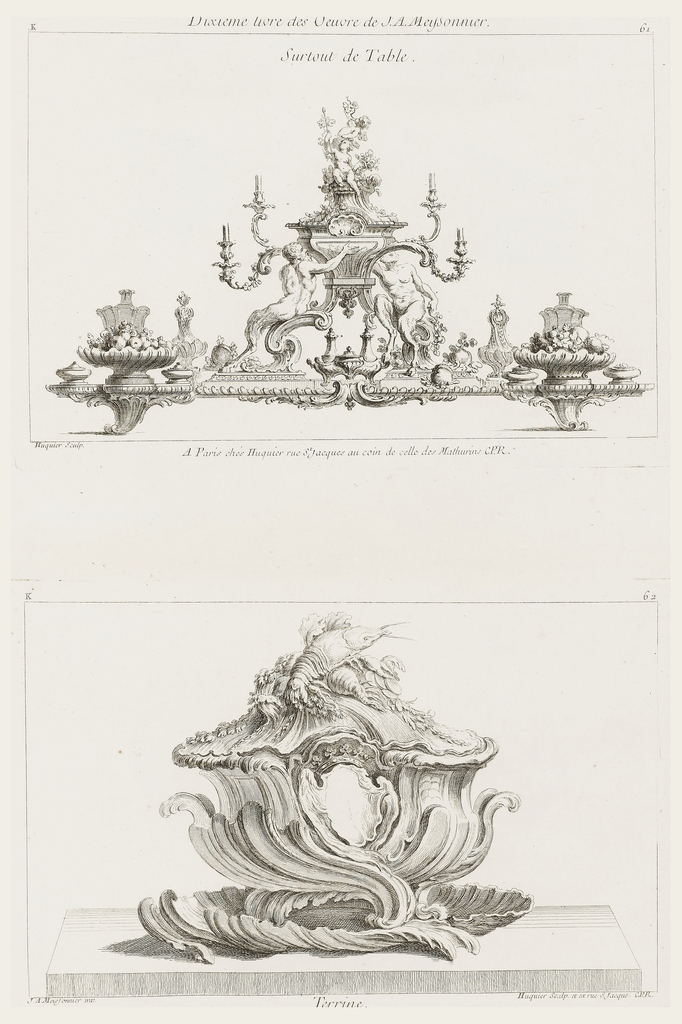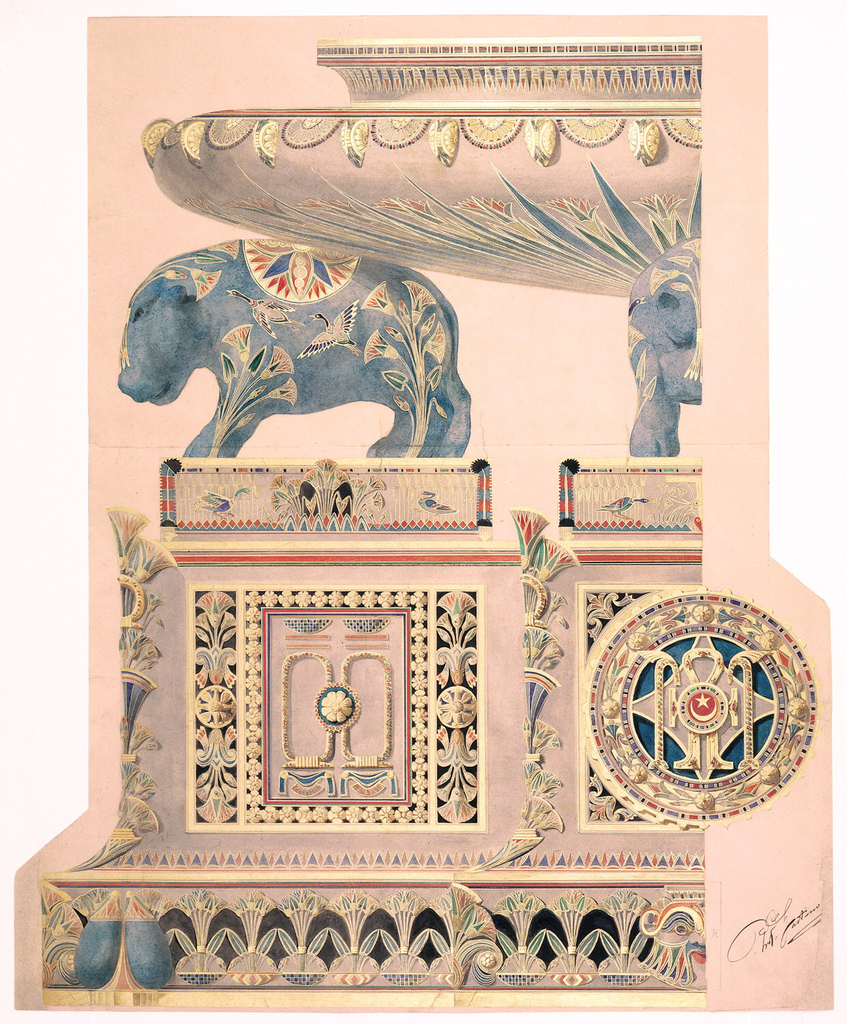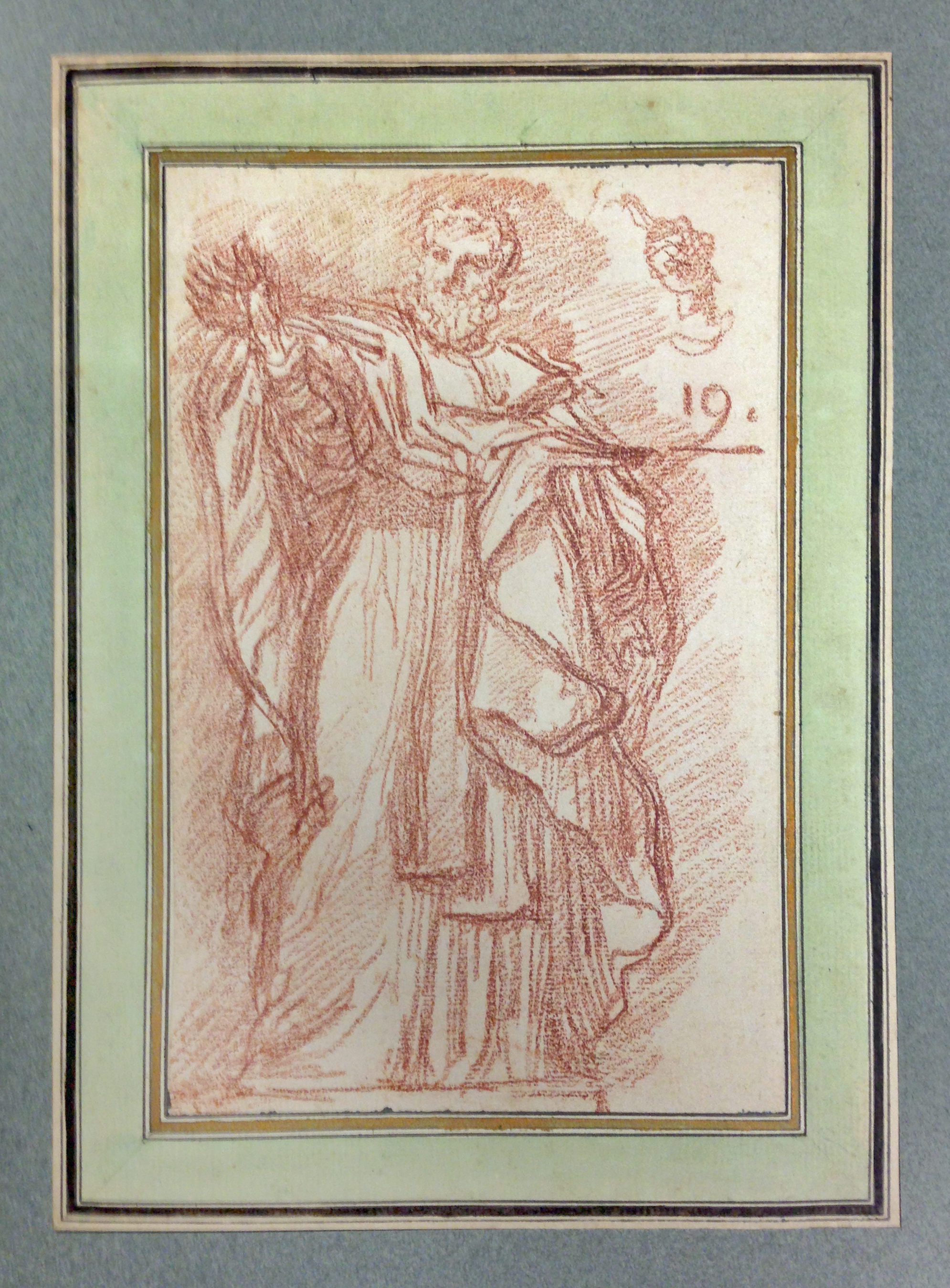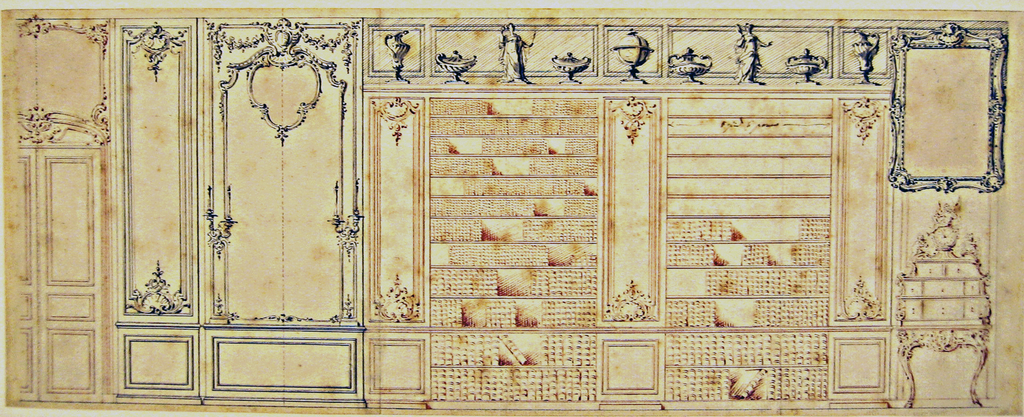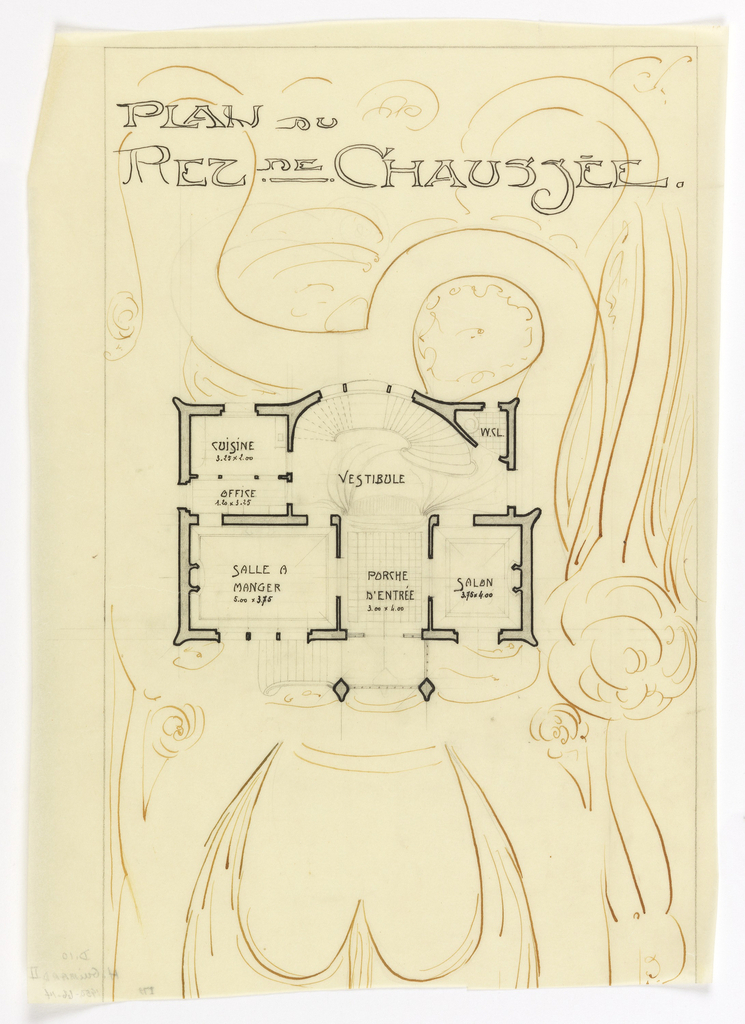This design for a vegetable dish, now on view in The Jazz Age: American Style in the 1920s, blends classical forms with modern decorative details.
This figure study of a nude male depicted from the rear in contrapposto, bears the geometric massing and imperfect proportions of the work of a student. Made in 1957, the drawing is a vestige of the collegiate days of renowned artist Eva Hesse (b. Hamburg, 1936-1970). From 1954-1957, Hesse was a student at the Cooper Union...
LIFE magazine deemed him as a “dressmaker in silver” in 1939, but Tommi Parzinger was an incredibly versatile designer, celebrated for his furniture, wallpaper, packaging and textiles.[1] Parzinger designed furnishings for socialites, decorators, and celebrities like Marilyn Monroe and the Rockefellers and he established himself as a man about town in the glamorous circles of...
Christina Malman’s 1935 drawing of a woman embracing a dog is both aesthetically magnetic and brimming with affect. Using a brush with black ink and white gouache, Malman masterfully utilizes positive and negative space to create simplified forms that are at once sleekly modern and yet familiar. The figures are depicted in a kind of...
“The tops of mountains are among the unfinished parts of the globe, whither it is a slight insult to the gods to climb and pry into their secrets, and try their effect on our humanity. Only daring and insolent men, perchance, go there.” – Henry David Thoreau, “The Maine Woods” Praised by his mentor Thomas...
The entrances he designed for the Parisian Metro system in 1900 made Hector Guimard an icon of French design at the turn of the 20th century. Between the 1890s and 1930s, Guimard designed buildings and objects for the public and private spheres, both large and small in scale. He is responsible for hundreds of decorative objects as well as over 50 buildings and interiors....
Perhaps better known for his illustrations of the Rubáiyát of Omar Khayyám, Elihu Vedder’s prolific career began in the 1860’s, when the Hudson River School was in its prime, and ended in the early 20th century, when Modernism was taking root. His work, influenced by the Pre-Raphaelites, captured the imagination of late 19th-century audiences. Born...
If anyone has come to know seminal avant-garde theatre director Robert Wilson, they will have witnessed the autodidact hard at work sketching. Whether backstage at a major European opera house or cramped into an economy-class plane seat—flying over the Alps to simulate the intensity of a Wagner aria—he always garners silence when drawing. When at...
In this atmospheric drawing, the robed figure of Death holds a smoking brazier and presides over a tomb cast in a gray wash. Stark shadows describe the geometric forms of a massive sarcophagus and sepulchral niche. The simplicity of the somber interior evokes the proportions of Egyptian architecture, as well as that ancient culture’s fascination with death. Louis-Jean...
In celebration of Women’s History Month, Cooper Hewitt is dedicating select Object of the Day entries to the work of women designers in our collection. Two delicate roses nestle on a creamy ground. Although drawn in grisailles, a monochromatic pallet of grays and black, the flowers achieve an astonishing realism. Anne Vallayer-Coster was a master...
The famous silver tureens that the eighteenth–century silversmith Juste-Aurèle Meissonnier designed for England’s Duke of Kingston may be the most celebrated objects of his career. They were etched in a double-page spread in Oeuvre de Juste-Aurele Meissonnier published by Gabriel Huquier around 1748. This volume is one of the rare books acquired by the Cooper...
Throughout the 19th century, Egypt was considered to be nominally a province of the Ottoman Empire, although both France and Britain worked to assert influence and control in the country. Isma’il Pasha was a young man when succeeded his uncle as Khedive (Viceroy) of Egypt in 1863. Isma’il presided over the country as it was...
This drawing of St. Nicholas of Bari, the model for Santa Claus,[1] was done by the artist Jean-Robert Ango (b. unknown, d. 1773) after the statue of the saint on the colonnade of St. Peter’s Basilica in Rome. Ango, originally from France, lived and worked in Rome from 1759 to 1772. During this time he...
The interior decoration depicted in this drawing is extremely fashionable for an eighteenth-century home. This design exhibits the quintessential light and airy Rococo features of arabesques, s- and c- scrolls, vegetal motifs and swags, all with the appearance of symmetry. The layout of the boiserie, or wall paneling, aids in the creation of symmetry within the...
Recognized for an Art Nouveau style all his own, French architect Hector Guimard (1867-1942) designed over a hundred buildings during a prolific fifteen-year span: 1898-1913. He is perhaps best known for having devised the iconic Paris Metro entrance in 1907, a wide-spread scheme employing standardized components that recreate natural forms through the structural and sculptural...
